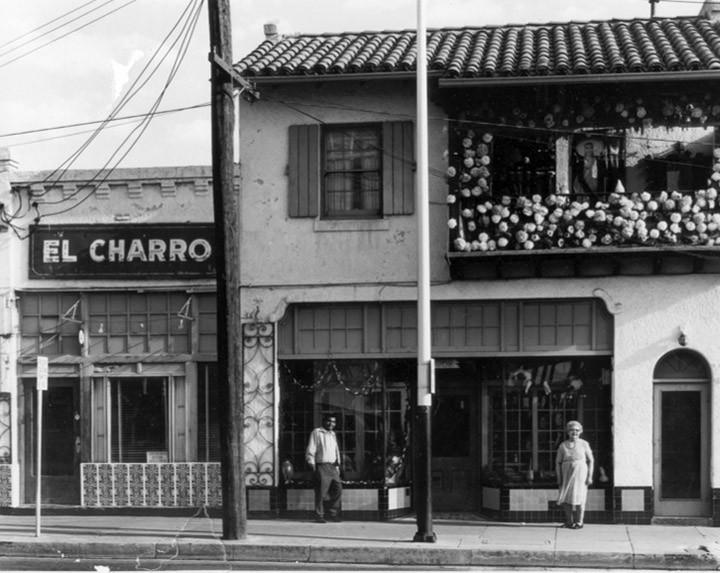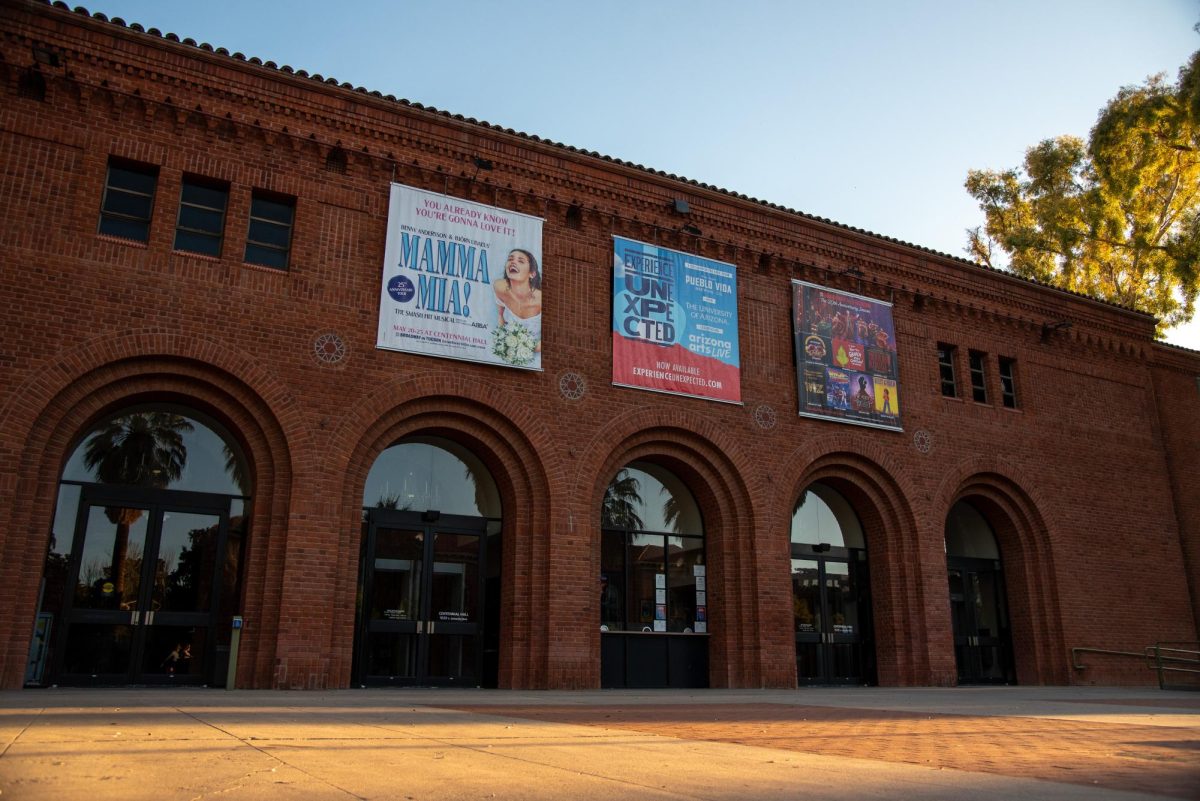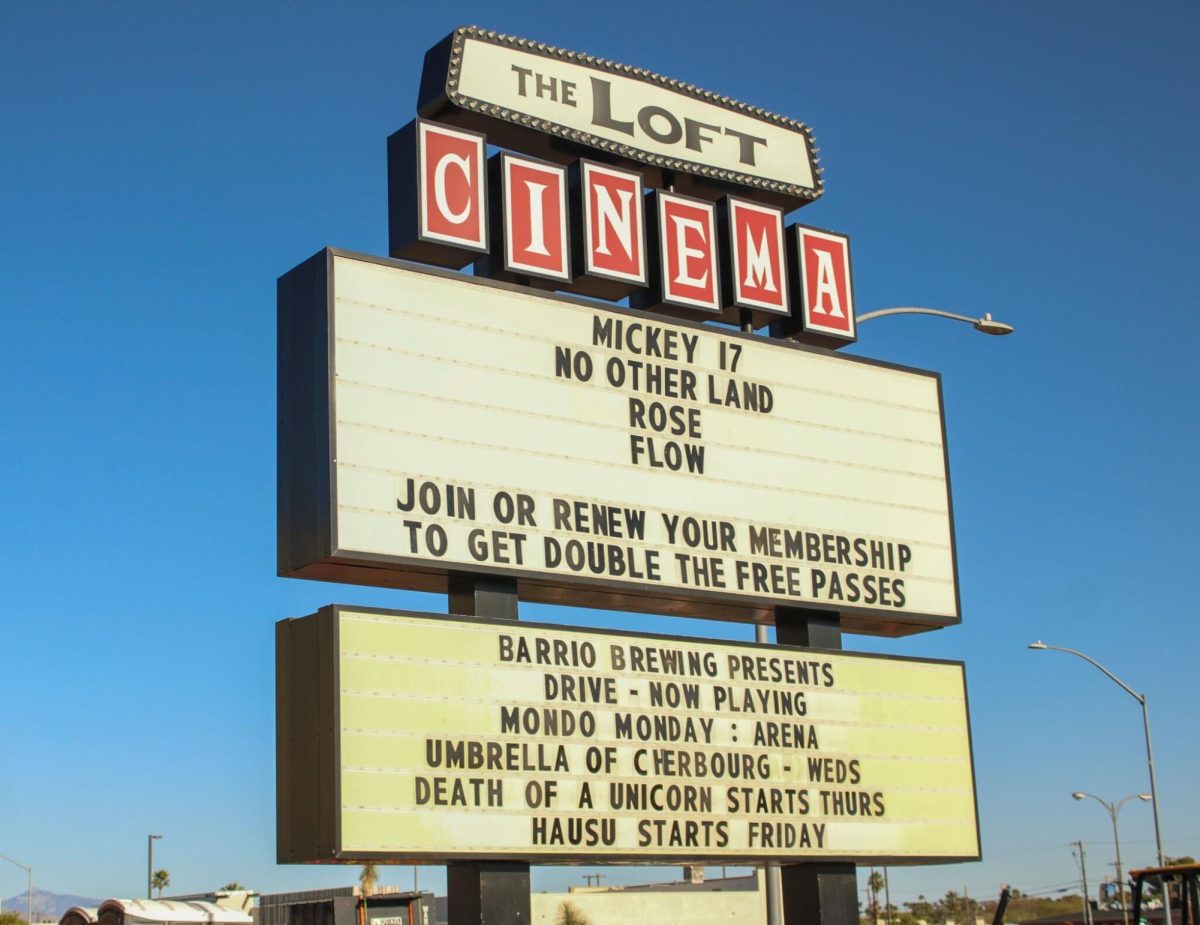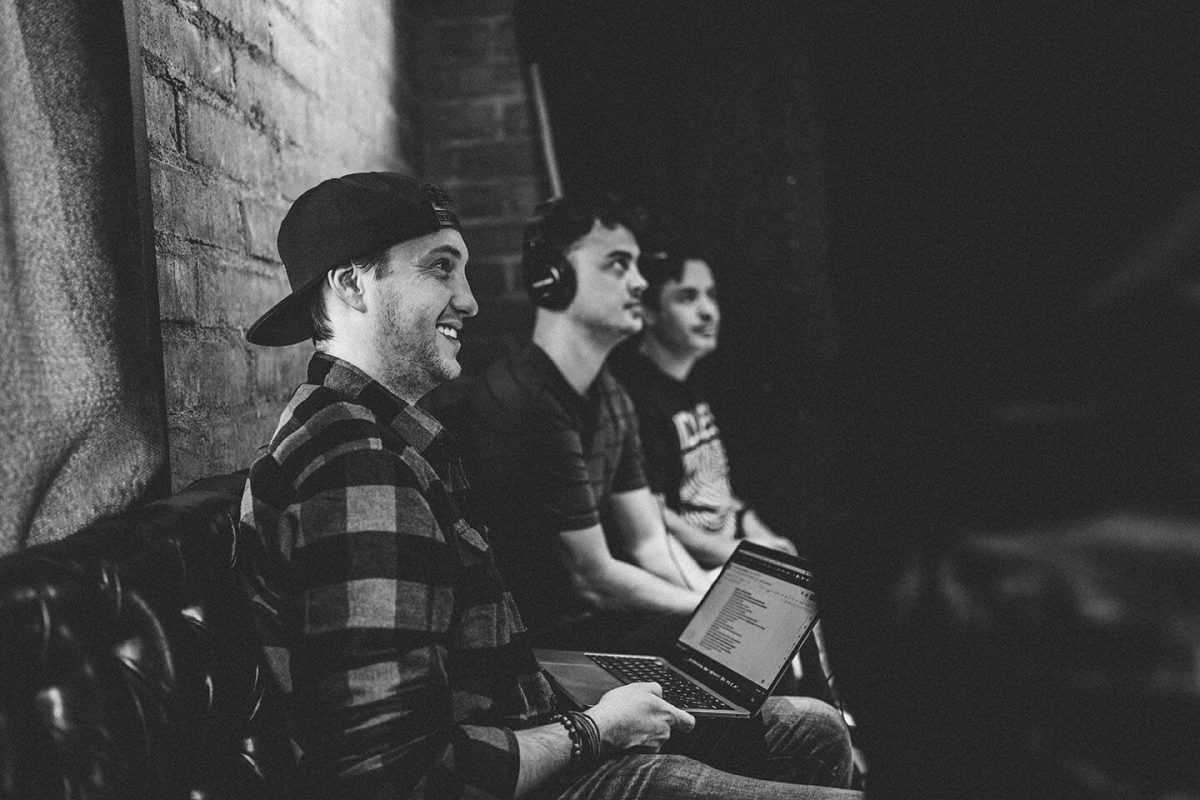Driving down Tucson’s Court Avenue, canary yellow buildings catch the eyes of passersby. As they scan the structures, the word “Toma!” is plastered on the wall of an almost century-old home acting as the centerpiece for a Tucson founding family and restaurant.
With Latin music playing in the background, bright turquoise ceilings and the feeling of coming home greeting guests, El Charro Café is the country’s oldest continuously-run Mexican restaurant and a family-run establishment—a staple for locals since the day it opened in 1922.
Started by El Charro President Ray Flores’ great-great-aunt, Monica Flin, the café was unique for its time, as women business owners were rare.
Monica ran the whole shop herself, working as the hostess, waiting on customers, cooking customers food, and shopping for ingredients and supplies. Flores noted that she was sometimes even found drinking a martini out of a teacup so no one would know—when all of the work was done, of course.
“She was a pioneering woman,” he said.
Monica and her family came to Tucson by way of France after her father, Jules Flin, was appointed to build the St. Augustine Cathedral. Jules was a renowned stonemason and even built the family’s dwelling, now the home of the original El Charro Café located at 311 N. Court Ave.
The El Charro businesses are scattered from Oro Valley to Ventana, including other El Charro Cafés andrestaurants, a catering business and a USDA commissary on 18th Street and Euclid Avenue called Carlotta’s Kitchen.
El Charro’s current chef is Carlotta Flores, the great-grandniece of original owner Monica Flin.
She has helped El Charro become what it is today: a critically acclaimed restaurant with all kinds of feature articles in publications such as Bon Appétit, Gourmet Magazine and recently the New York Post, among other publications and television stations like the Food Network and the Travel Channel.
Carlotta Flores’ son, Ray Flores, described his mom as “a force of nature” who outworks everyone, including himself. She is always trying new recipes to add to the extensive existing menu to maintain a fresh and ingenious outlook on food.
The restaurant features inventive Sonoran-style Mexican food with a specialty: the chimichanga.
According to the El Charro website and Flores family stories, Monica Flin is the inventor of the chimichanga. On accident, she dropped a burro into a frying pan and searing-hot oil splashed about.
There’s a curse word in Spanish that starts with “ch”, but Monica’s young nieces and nephews were around her, so she refrained from swearing. Instead she said, “Chimichanga,” which is close to the word “thingamajig.” Henceforth, Monica Flin’s creation was known by the name of her linguistic invention.
Utilizing local products, as well as manufacturing them, El Charro even sells to the MGM Grand’s Hecho en Vegas restaurant in Las Vegas. From Carlotta’s Kitchen, they ship shredded beef birria, green and red chile beef tamales, red and green chile enchilada sauces and salsas, among other prepared meats, Ray noted.
The produce, meat and dairy products used for El Charro’s concoctions come from the highest quality ingredients they can get, including products from a company founded in Tucson: Shamrock Farms.
The dairy farm, also established in 1922, is one of the largest family-owned producers in the U.S.
Ann Ocana, chief marketing officer for Shamrock Foods, describes the El Charro family business as passionate, creative and in-tune with their customer’s requests.
“This is not simply a restaurant, it’s a family legacy that has stood the test of time,” Ocana said.
El Charro opens at 10 a.m. daily and operates seven days a week for lunch, happy hour and dinner. Throughout the city with El Charro, El Charro Catering, Carlotta’s Kitchen and other associated brands including Sir Veza’s Taco Garage and Pub 1922, the affiliates employ about 400 people year-round, Ray explained.
“El Charro is an experience, and people need to experience it,” he said.
With servers rolling their ‘r’s when asking if the guests want another margarita on the rocks with salt, the menu simply requests that patrons dance on the tables responsibly when ordering a cerveza-rita with a Corona plunked inside.









